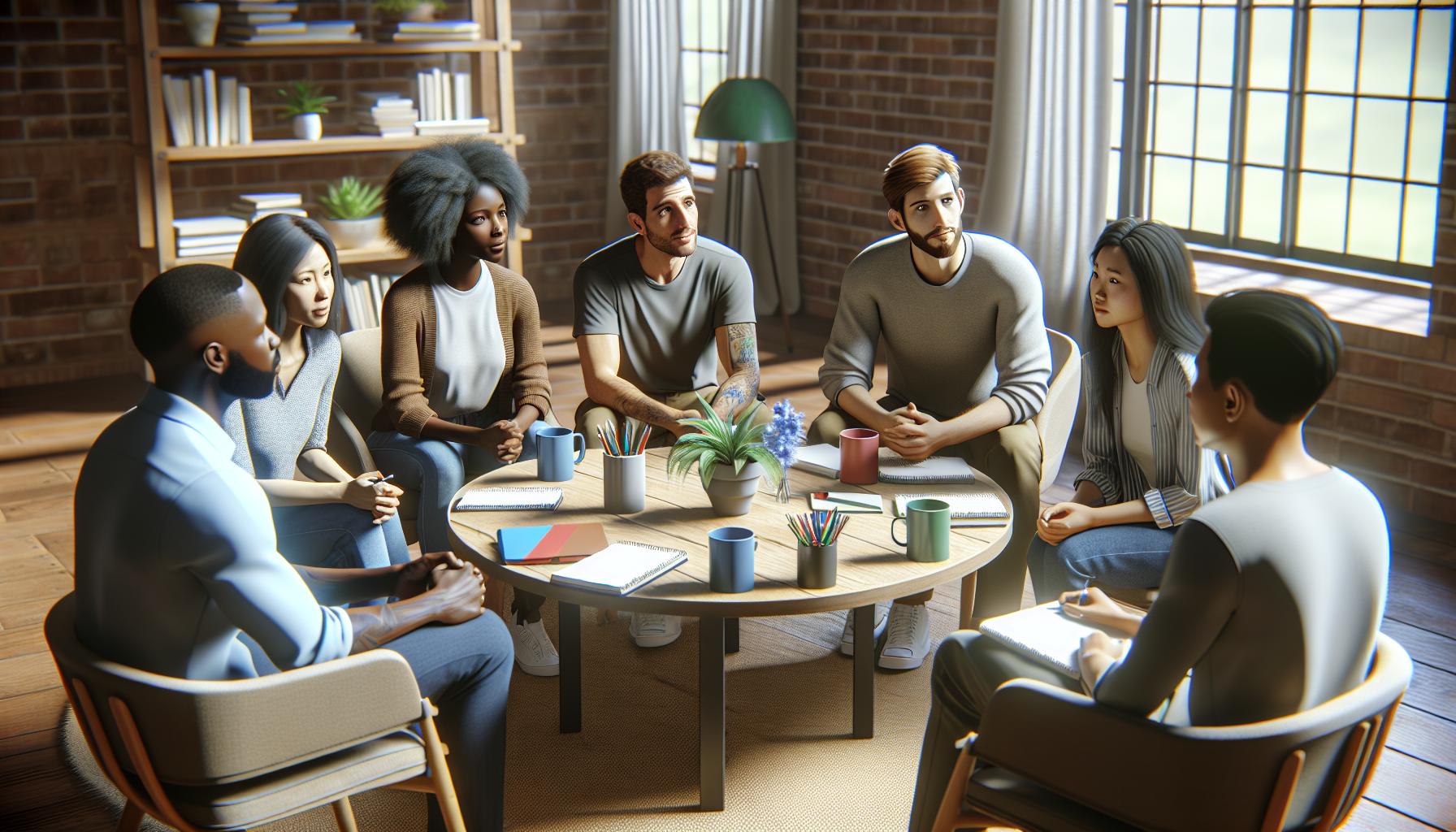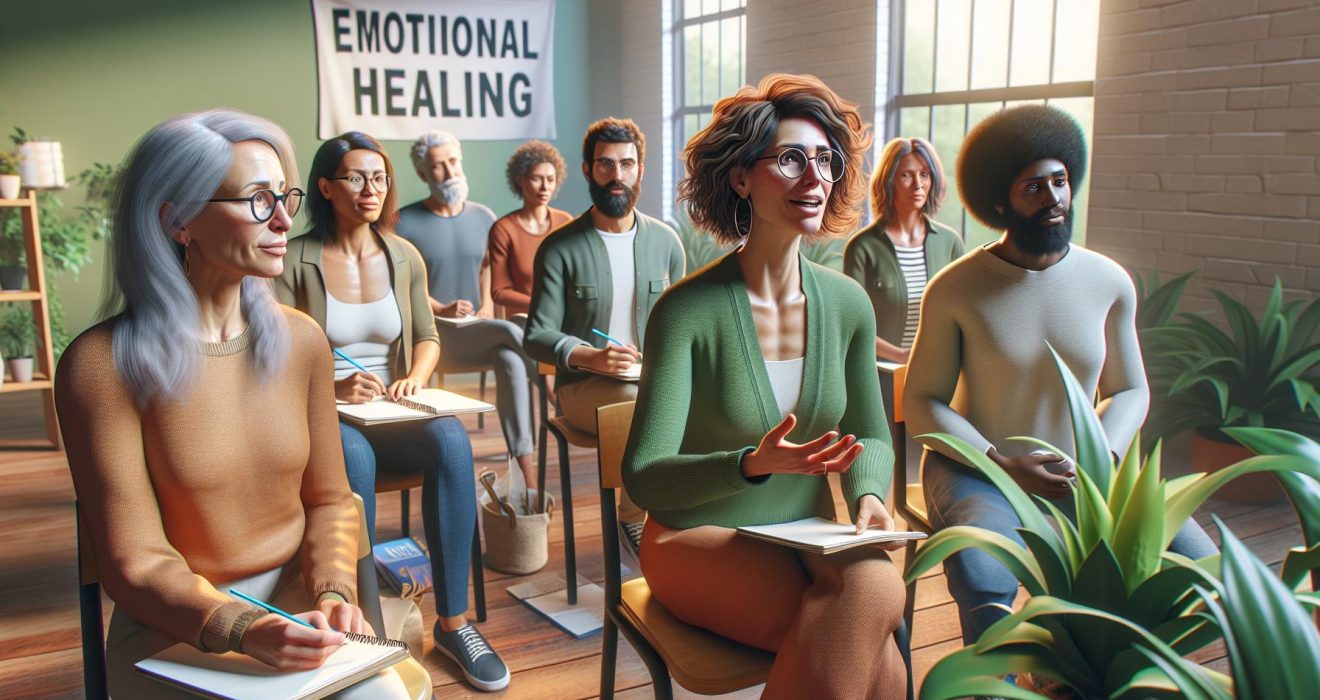Top Courses to Learn How to Effectively Resolve Trauma and Promote Healing
As I settled into my favorite chair, a cozy blanket draped over my lap, I couldn’t help but feel a spark of excitement. The journey of learning is like unwrapping a cherished family recipe—each layer reveals something new and comforting. Today, I’m diving into the world of courses designed to help resolve trauma, a topic that resonates deeply with so many of us.
There’s something truly magical about discovering tools and techniques that not only heal but also empower. I imagine sharing these newfound insights over tea with friends, each story a thread weaving us closer together. Whether it’s understanding the nuances of emotional healing or exploring mindfulness practices, the joy of learning is filled with unexpected treasures waiting to be uncovered. Let’s embark on this enlightening adventure together, where every lesson learned can spark a conversation and bring hope to those who need it most.
Understanding Trauma
Trauma can feel like an uninvited guest that overstays its welcome. Whether it comes from childhood experiences, accidents, or significant loss, it’s real and affects everyday life. It doesn’t just vanish; it lingers, impacting relationships, self-esteem, and even how I handle day-to-day stressors.
I’ve learned that trauma isn’t just in my head. The mind and body connect in surprising ways, and unaddressed trauma can manifest as physical symptoms. Stress can cause headaches, fatigue, and even chronic pain. Understanding trauma means recognizing these signals and knowing that they deserve attention—like when I shove a book under my bed but can’t ignore the pile of stories begging to be read.
The brain rewires itself in response to trauma. The amygdala, that little almond-shaped region, goes into overdrive, keeping vigilance at an all-time high. It’s like having an overprotective friend who thinks every shadow is a threat. This is why learning about trauma can shift perspectives and help me regain control over my life.
Talking about healing isn’t just about the headspace; it’s about the heart, too. Trauma can lead to feelings of isolation, like I’m on an island while everyone else throws a party. Accessing education helps me understand I’m not alone, and that feeling connected can spark healing. Courses focused on trauma teach skills and techniques for managing emotions. I can apply mindfulness practices, tapping into the body’s innate ability to heal.
Resources like therapy, workshops, and support groups serve as lifelines. These courses frequently teach coping strategies, emotional regulation, and self-compassion, providing the tools necessary to navigate trauma’s rocky terrain.
Exploring trauma can lead to empowerment. Embracing this journey reinforces the idea that healing is possible and often involves an ongoing process. With insights from trauma education, I can shift from feeling like a victim to becoming the hero of my own healing story. By understanding and resolving trauma, I open doors to a brighter future—one full of connection, joy, and perhaps a little laughter along the way.
Importance of Education in Trauma Resolution

Learning about trauma isn’t just about hitting the books; it’s about arming yourself with tools to reclaim your life. Trauma’s got a way of sneaking into every corner of our existence, affecting how we think, feel, and relate to others. By diving into courses on trauma, I can shift my perspective and take control of my life again.
Skills Developed Through Courses
Courses on trauma equip me with skills that are like emotional Swiss Army knives. I learn mindfulness techniques to keep me grounded, emotion regulation strategies to help me manage those rollercoaster feelings, and coping tools to deal with life’s surprises. These skills create a toolkit I can pull from in tough times, transforming overwhelming sensations into manageable responses. Talk about turning trauma into triumph!
Benefits of Professional Guidance
There’s something magical about learning from someone who’s been there and done that. Professional guidance offers a safe space to explore those heavy feelings. It’s like having a GPS when I’m lost in the emotional wilderness. Experts help me understand the intricate dance between mind and body, clarifying how trauma rewires my brain and affects my daily life. They guide me through processes that lead to real healing, ensuring I’m supported every step of the way. With their experience, I can face my trauma head-on and emerge stronger, armed with knowledge and surrounded by a community that gets it.
Types of Courses Available

I’ve found that navigating trauma often feels like trying to find your way in a maze blindfolded. Luckily, various courses can cut through the confusion and guide me back to clarity. Here’s a quick peek at the types of courses I’ve come across that really make a difference.
Online Courses
Online courses are fantastic for anyone looking to learn at their own pace, right from the comfort of their couch (pajamas encouraged). These courses cover a variety of topics, from understanding trauma’s impact on the brain to practicing mindfulness techniques. With engaging videos, interactive quizzes, and supportive communities, it’s like having a personal support group in my pocket. Plus, I can binge-watch my healing—no awkward small talk required!
In-Person Workshops
In-person workshops take the cake for immersive experiences. Here, I get to connect with real people who share similar stories. These dynamic sessions allow for hands-on activities that foster deep emotional connections, leading to genuine breakthroughs. Think of it as a mini-retreat where laughter meets healing, and we can cry and share without feeling judged. The shared energy in the room brings palpable power to the healing process, turning vulnerability into strength and camaraderie.
Certification Programs
Certification programs are perfect for those who want to dive deeper or even help others heal. These intensive courses blend theory with practice, offering a roadmap to understanding trauma in greater detail. I get to learn valuable skills that not only help me but also prepare me to be a guiding light for others. Completing a certification feels like earning a badge, proving I’ve tackled the tough stuff and come out stronger on the other side. Plus, it’s a great way to boost my resume while making a meaningful difference in the world.
When it comes to resolving trauma, these courses empower me to connect, learn, and ultimately transform challenges into triumphs.
How to Choose the Right Course

Choosing the right course to help resolve trauma can feel overwhelming, but it can also be an exciting journey toward healing. I’ve been there, and the right course can make all the difference.
Assessing Personal Needs
Start by reflecting on your own experiences. Identify the specific areas where you feel stuck. Are you looking to manage anxiety, process past experiences, or develop coping strategies? Different courses cater to different needs. If you’re diving into trauma for the first time, a foundational course might be ideal. If you’re already familiar with the basics, advance to something more specialized. Knowing your goals creates a roadmap for your educational journey.
Evaluating Course Credibility
Not all courses are created equal. Look for instructors with appropriate credentials, like licenses or certifications in trauma therapy. Read reviews from others who’ve taken the course. A good sign? If students rave about their transformation, you’re likely onto something special. Also, consider the support offered. Do they provide additional resources, community forums, or follow-up sessions? These features enhance the learning experience and keep you engaged. By doing your homework, you’ll find a course that resonates, saving both time and heartache down the line.
Conclusion
Exploring courses that help resolve trauma has been a transformative journey for me. Each lesson learned feels like a step toward reclaiming my life and fostering deeper connections with others. I’ve discovered that education not only equips us with essential tools but also offers a sense of community and support.
As I continue on this path of healing, I’m reminded that it’s okay to seek help and guidance. The right course can empower us to face our past and embrace a brighter future. I hope you find the courage to embark on your own journey and uncover the strength that lies within you. Here’s to healing and the joy that comes with it.

